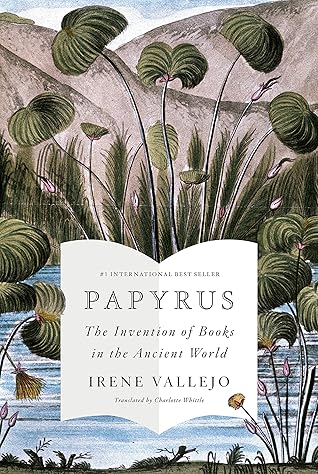More on this book
Community
Kindle Notes & Highlights
Read between
January 5 - January 19, 2025
The literary terms we use today still rely on the same image of storytelling as a tapestry. We keep speaking—with textile metaphors—of the warp and weft of a narrative, of spinning a tale, of weaving a plot. What is a text for us, if not a collection of verbal threads knotted together?
Aeschylus seems to have researched Persian society—he demonstrates familiarity with real genealogies, Iranian words, and aspects of the pomp and ceremony of the court. But what’s most remarkable is that we detect no trace of hatred, but rather an unexpected comprehension.
Aeschylus, after fighting the Persians in close combat, staring them in the face, after seeing his brother die near him in battle, brought to the stage the sorrows of his defeated enemies. He did so without mockery, hatred, or generalized blame.
Herodotus strove to topple his Greek countrymen’s prejudices, teaching them that “the line between civilization and barbarism is never a geographic border between countries, but a moral border within every people, and beyond that, within each individual.”
Herodotus had set himself the extraordinary goal of making world history immortal, and he let nothing deter him. In the distant fifth century BC, it was impossible to read up on foreign lands in archives and libraries, so his method was essentially that of the journalist: travel, observe, ask questions, draw conclusions from what others told him and from what he saw for himself.
The customs of every culture are distinct, but everywhere they are deeply ingrained.
Only brief texts such as a tragedy or a Socratic dialogue fit comfortably onto a single scroll. The longer the scrolls, the more awkward and fragile, and the more likely they were to break.
Some scholars believe that on the haphazard, twisting path across the centuries, these copies were saved precisely because they were stored together in one or several of those boxes.
Because the most authentic laughter still contains the pulse of rebellion against domination, authority, and status, the contempt these forces so often fear.
In some areas of Egypt—alas, not in the Nile delta, where Alexandria is located—writings have been recovered that were abandoned or thrown into the trash two thousand years ago.
The oratory practiced by Greek lawyers and statesmen was quite different from what we see today. In the absence of libel laws, orators hurled a plethora of slanderous insults at one another.
Seduced by the beauty of words, the Greeks inaugurated the genre of the lecture, which was astonishingly successful during antiquity. The Sophists, itinerant teachers who traveled from city to city hunting for students, held exhibitions to introduce themselves, show the quality of their teaching, and demonstrate their skills before an auditorium.
Unlike what Plato says, evil characters are an essential ingredient of traditional tales: they are there for children to learn that evil exists.
We can send all the literature of the past to the operating room for cosmetic surgery, but then it will no longer be able to explain the world to us.
Two hundred years later, in 1974, the sociologist David Phillips coined the term “the Werther effect” to describe the mysterious urge to imitate the act of suicide. Even a fictional character’s actions can be contagious and unleash a string of identical cases.
As you read these lines, somewhere in the world a library is burning down. At this very moment, a publisher is pulping its unsold stock. Somewhere not far from you, a flood is submerging a priceless collection in water.
Researchers estimate that during the Nazi bibliocaust, works by more than fifty-five hundred authors whom the new leaders considered degenerate were burned—a prologue to the furnaces that were to come, just as Heinrich Heine had prophesied in 1821 when he wrote, “Those who burn books will in the end burn people.”
Our sophisticated, technological global society can still be destabilized by the shock waves of an act of such an ancient variety of barbarism.
As if according to some mysterious law of recurrence, certain regions suffer the shock waves of global tensions and unsolvable conflicts again and again. Since time immemorial, the eastern Mediterranean has been one of these geopolitical lightning rods.
It’s true that Amr conquered Alexandria in the year 640, and the general outline of events also seems credible, but many specialists believe that Ibn al-Qifṭī and ʿAbd al-Laṭīf invented the story of the Great Library’s tragic end.
can culture serve as a lifeline for someone subjected to abuse, hunger, and the threat of death?


